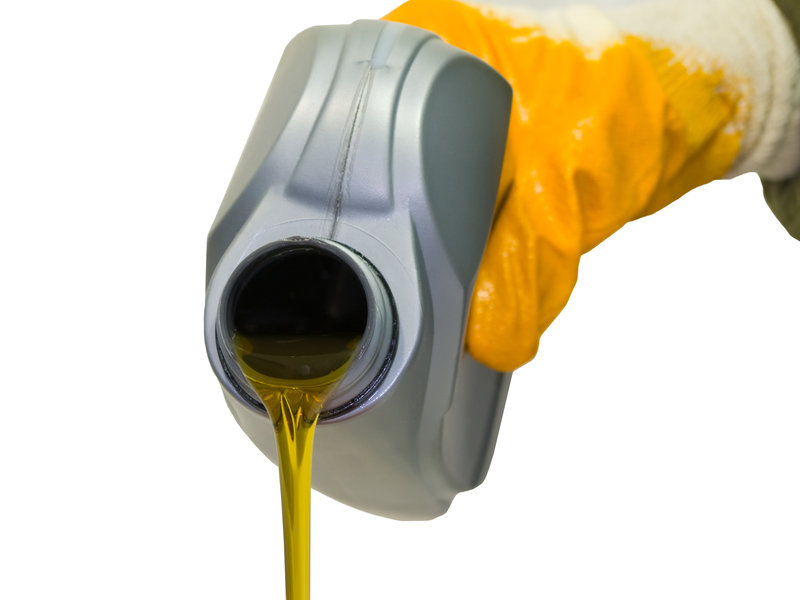PPE Waste Disposal: What You Need to Know to Be Responsible
The rapid surge in personal protective equipment (PPE) usage over the last few years has been critical in safeguarding public health. However, with increased reliance on masks, gloves, gowns, and face shields, the mounting volume of PPE waste presents a new challenge. Responsible PPE waste disposal is essential not just for environmental sustainability but also for disease control and community safety. In this comprehensive guide, we'll explore everything you need to know about responsible PPE disposal, including the impact of improper disposal, step-by-step methods for waste management, laws and guidance, and innovative solutions for the future.
Understanding the Importance of PPE Waste Disposal
PPE waste refers to discarded items such as single-use masks, gloves, face shields, gowns, and shoe covers, primarily used in healthcare, industrial, and public settings. Incorrect PPE disposal contributes to growing pollution, poses health risks, and threatens wildlife.
- Environmental Impact: Most PPE is made from non-biodegradable plastics that can persist in landfills for decades.
- Public Health: Discarded PPE may harbor infectious agents, increasing the risk of cross-contamination and community spread.
- Wildlife Threat: Animals may ingest or become entangled in improperly disposed PPE, often with fatal consequences.
Proper PPE waste management is essential for reducing these risks and fostering a cleaner, safer planet. But what does responsible disposal entail? Let's dig deeper.

Types of PPE Waste and Their Disposal Challenges
Common Types of PPE Materials
- Masks: Usually made of polypropylene, a type of plastic fiber.
- Gloves: Latex, nitrile, and vinyl are common materials, each with specific disposal implications.
- Gowns and Face Shields: Often composed of plastic-based or mixed materials, making recycling difficult.
- Hairnets, Shoe Covers, and Aprons: Mostly single-use and plastic.
PPE Waste Disposal Obstacles
- Non-biodegradable nature - Most PPE does not break down easily in standard landfill conditions.
- Contamination risks - Used PPE may carry viruses or bacteria, complicating recycling and regular waste handling.
- Volume - Global PPE usage has skyrocketed, overwhelming existing waste systems.
- Lack of public awareness - Many people are unsure about how to properly dispose of PPE.
Legal Guidelines and Regulations for PPE Waste Disposal
The management of PPE waste is often governed by local, national, and international regulations. Healthcare facilities and industrial sites must abide by strict protocols, while community disposal practices may vary.
Key Rules for PPE Waste Disposal
- Infectious Waste Handling: In healthcare settings, used PPE is often classified as infectious or clinical waste and must be disposed of in marked containers.
- Segregation at Source: Separating hazardous PPE waste from general trash reduces cross-contamination.
- PPE Recycling Streams: Some countries have introduced specific recycling guidelines for uncontaminated PPE materials.
- Public Awareness Campaigns: Many governments now offer guidance on mask and glove disposal for households.
Check with your local authority about regulations for PPE waste disposal in your area, as rules and available facilities can differ greatly.
Step-by-Step Guide: How to Dispose of PPE Waste Responsibly
1. Remove PPE Safely
- Avoid touching the outside surface of your PPE, especially masks and gloves.
- Follow proper removal techniques to minimize the risk of contamination.
2. Segregate Used PPE From Other Waste
- Dedicated PPE disposal bins are ideal, especially if you are generating large quantities of waste (e.g., workplace or healthcare facility).
- Household users should place PPE in a separate bag before putting it in the general trash.
- Do not place used PPE in recycling bins unless instructed by local guidance.
3. Bag and Seal PPE Waste
- Double-bagging is recommended for potentially infectious or contaminated PPE (e.g., from caring for sick individuals).
- Seal bags tightly to prevent accidental exposure to waste handlers and wildlife.
4. Label and Store Temporarily (If Needed)
- Mark bags clearly if they contain contaminated PPE.
- Store PPE waste outside the living area if collection is not immediate, keeping it inaccessible to children and pets.
5. Follow Local Disposal Guidelines
- Consult your city or county waste management website for specific instructions on PPE waste disposal.
- Some municipalities have special collection days or drop-off points for hazardous or medical waste.
Never litter PPE! Misplaced masks or gloves can endanger public health and escalate pollution problems.
Responsible PPE Waste Management in Different Settings
Healthcare and Clinical Environments
- All used PPE must go into yellow clinical waste bags or containers marked for infectious waste.
- Sharps (needles, lancets, etc.) must never be mixed with general PPE waste.
- Trained personnel should handle and transport waste to designated treatment centers (e.g., incinerators, autoclaves).
Industrial and Corporate Workplaces
- Provide clear disposal points for PPE throughout the premise.
- Train staff in PPE disposal protocols, including segregation and proper use of bins.
- Consider partnerships with waste management services specializing in PPE waste.
Schools and Public Spaces
- Install labeled PPE waste bins to facilitate correct disposal by students and staff.
- Raise awareness with signs and educational materials on the importance of PPE waste management.
- Instruct cleaning staff on safe handling and transfer to municipal disposal streams.
Households
- Use a dedicated waste bag or bin for all PPE, especially if someone is ill at home.
- Seal and dispose with general waste following local guidance.
Why Not Recycle Used PPE?
While sustainability is crucial, most PPE waste is unsuitable for recycling due to two primary reasons:
- Contamination: Used PPE may carry pathogens, making the recycling process hazardous for workers and requiring rigorous decontamination.
- Composite materials: A typical mask may have multiple layers of plastic, metal, and elastic, hindering conventional recycling techniques.
However, uncontaminated or unused surplus PPE may be accepted by specialized recyclers in certain locations. Always check with your local facilities before attempting to recycle PPE.
Environmental and Health Hazards of Improper PPE Waste Disposal
- Pollution of land and waterways: Discarded masks and gloves can block drains, wash into rivers, and contribute to the mounting plastic pollution crisis in oceans.
- Wildlife injury: Animals may mistake discarded PPE for food, leading to choking, intestinal blockages, or entanglement.
- Spread of infectious diseases: Improperly discarded PPE may harbor dangerous microbes, threatening sanitation workers and the wider community.
Responsible action isn't just about following rules--it's about safeguarding our environment and health.
Innovative Solutions and Future Trends in PPE Waste Management
PPE Waste-to-Energy Conversion
- Incineration with energy recovery can safely destroy contaminated PPE waste and produce electricity or heat as a byproduct.
- Pyrolysis and advanced thermal treatments are promising techniques that break down plastics at high temperatures into reusable fuels.
PPE Recycling Innovations
- Dedicated recycling programs are emerging for masks, especially in countries like the UK, US, and Australia.
- Manufacturers are piloting take-back schemes and developing single-material PPE designed for easy recycling.
Biodegradable and Reusable PPE
- Research into biodegradable materials is advancing, promising plant-based plastics or compostable alternatives for masks and gloves.
- Reusable cloth masks and gowns can drastically reduce the total volume of PPE waste when used and cleaned correctly.
What Can You Do? Individual Responsibility in PPE Waste Disposal
- Always dispose of PPE correctly, following your local waste guidelines.
- Avoid littering--keep spare waste bags with you for used PPE when outdoors.
- Educate others about the risks and proper disposal methods: Schools, families, and employers should discuss PPE waste management.
- Choose reusable or sustainable PPE options when possible and practical.
Your actions matter--responsible PPE waste management is a shared duty. Each piece of PPE disposed of correctly helps prevent pollution and disease, ensuring a healthier environment for all.

Frequently Asked Questions about PPE Waste Disposal
Can I throw used masks and gloves in the recycling?
No. Most PPE, especially when used, should go in the general waste, not in recycling bins, to avoid contamination.
What should I do if my area lacks dedicated PPE disposal?
Double-bag your PPE waste and discard it with your regular trash. Never leave it outdoors or in public spaces.
Is burning used PPE at home a good solution?
Never burn PPE waste at home. Burning plastics releases toxic chemicals and can harm your health and the environment.
Can reusable PPE help solve the waste problem?
Reusable masks and gowns significantly reduce waste--make sure to clean them regularly as per manufacturer's instructions.
Conclusion: Make PPE Waste Disposal a Priority
Responsible PPE waste disposal is critical for the welfare of people, wildlife, and the environment. Whether you run a healthcare facility, a business, or a household, understanding proper PPE waste management ensures that we don't trade one crisis for another. By following best practices, keeping up with local guidelines, and supporting innovative solutions, you can play a vital role in addressing the challenges of PPE waste.
- Segregate, bag, seal, and label PPE waste as appropriate.
- Never mix used PPE with recyclables or compost.
- Advocate for better waste management and environmentally friendly PPE choices.
Being proactive and informed about PPE waste disposal isn't just about compliance--it's about care for our planet and one another. Let's work together to dispose of PPE waste responsibly for a safer, cleaner future.
```